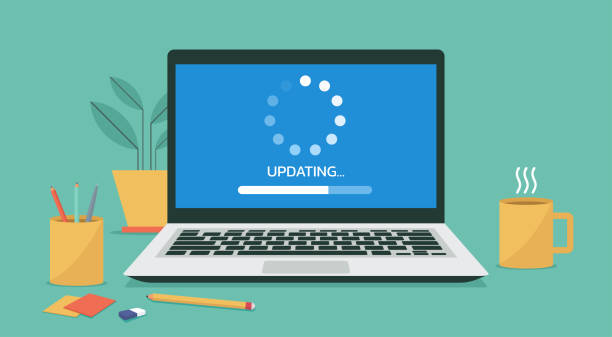Newsletter Subscribe
Enter your email address below and subscribe to our newsletter

Buying a used laptop in Nigeria in recent times can be a sensible choice, especially for those looking to save money or obtain a specific model that is no longer being manufactured.
However, when considering purchasing a used HP, Dell, or Mac laptop in Nigeria, there are several critical factors to consider before making a decision.
In this post, we’ll be reviewing the 11 key things to keep in mind when buying a new laptop that is used.
The 11 things to have in mind when buying a used laptop in Nigeria includes:
When considering the age of a used laptop in Nigeria, it’s crucial to remember that older models may not be as efficient or powerful as newer ones.
Additionally, an older laptop may be more susceptible to hardware failures and may not be compatible with the latest software updates. This is particularly important for those who plan to use the laptop for gaming, video editing, or other resource-intensive tasks.
In addition to the laptop’s age, it’s also essential to consider its previous usage. A laptop that has been used extensively for gaming or other demanding tasks may have a shorter lifespan compared to one that has been used primarily for browsing and basic productivity.
Ask the seller about the laptop’s previous usage habits, such as whether it was used for work, school, or personal use, and how often it was used.
Also, consider the used laptop’s history, including any repairs or upgrades that have been made. A laptop that has been repaired or upgraded may have a longer lifespan and better performance than one that has not been maintained.
It’s also important to consider whether the laptop has been exposed to any environmental factors that could affect its performance, such as extreme temperatures or humidity.
Read also:New College for AI and Data Science Launches in Nanyang Technological University
When considering the battery health of a used laptop, it is important to take into account several aspects. The battery is a critical component of any laptop, and its condition can significantly impact the device’s usability and longevity.
One way to assess the battery’s health is by looking at its cycle count, which refers to the number of charge and discharge cycles it has undergone. Generally, lithium-ion batteries have a limited number of cycles before their capacity begins to degrade.
Therefore, it’s essential to check the cycle count of a used laptop’s battery to assess its remaining lifespan. A higher cycle count may indicate that the battery is closer to the end of its usable life.
Another metric to consider is the battery’s wear level, which indicates the extent to which the battery’s capacity has diminished over time. A high wear level may indicate that the battery’s overall capacity has decreased significantly, resulting in shorter battery life.
Some laptops may provide information about the battery’s wear level in their battery settings or diagnostics. Also, consider the battery’s current capacity, as lithium-ion batteries naturally lose capacity over time.
Assess how the battery’s condition will impact your intended use of the laptop and whether it meets your needs. Finally, if the battery’s health is poor or if it has a high cycle count and wear level, you may need to consider replacing the battery.
Inquire about the availability and cost of a replacement battery for the specific laptop model you are interested in. Keep in mind that replacing the battery can be an additional expense, so factor this into your purchasing decision.
Read more:How to Check KCSE Timetable Online in 2024
When buying a used laptop in Nigeria it is important to verify the operating system (OS) installed on the laptop. If it’s a Windows laptop, ensure that it is running a genuine version of the Windows OS.
Microsoft provides a tool called the “Windows Genuine Advantage,” which can verify the authenticity of Windows software. For macOS laptops, check if the OS version is up-to-date and legally licensed.
Check the software that comes pre-installed on the laptop. For Windows laptops, ensure that it includes essential software such as an antivirus program, web browser, and office suite (like Microsoft Office or LibreOffice).
Also, check for any additional software or programs that may be included, such as media players, photo editors, or utility tools. For macOS laptops, verify the presence of essential software like the Safari web browser, Mail app, and Preview for viewing PDFs and images.
Additionally, ensure that the laptop includes productivity tools like Pages, Numbers, and Keynote, which are Apple’s alternatives to Microsoft Office.
Also, check if the laptop is eligible for future software updates. For Windows laptops, make sure they support the latest Windows updates and security patches.
For macOS laptops, verify if the laptop is compatible with the latest macOS updates. This is important for security and performance reasons.
By carefully considering the operating system and software, you can ensure that the used HP, Dell, or Mac laptop you are purchasing in Nigeria meets your needs and is ready for use right out of the box.
When considering buying a used laptop in Nigeria, examining its physical condition is crucial. This involves carefully inspecting the laptop’s exterior components: the body, screen, keyboard, and trackpad.
For the laptop body, look for any visible damage such as dents, cracks, or warping, paying close attention to the edges and corners, which may be more susceptible to damage from accidental drops. On the screen, check for scratches, dead pixels, or discoloration.
Test the keyboard by typing on all keys to ensure functionality and responsiveness, and ensure the trackpad works smoothly and accurately. Pay attention to wear or damage, such as worn-out keys or a sticky trackpad.
Additionally, verify that the hinges are not loose or damaged by gently opening and closing the laptop. Loose or damaged hinges can affect the laptop’s usability and durability.
Moreover, evaluate the internal hardware components, including the processor, memory, and storage, for any wear or damage. A noisy fan, slow performance, or error messages during startup could indicate hardware issues.
Finally, consider running a diagnostic test to assess the laptop’s overall health and performance.
Read also:5 Best Places to Buy Ghana WAEC Result Checker Online and Offline
Research the market value of the specific laptop model you are interested in. Compare prices from different sellers to ensure you are getting a fair deal. Be wary of prices that seem too good to be true
Inquire about any remaining warranty or service contracts. Some used laptops may still be under warranty, which can provide peace of mind in case of any issues.
When buying a used laptop, the reputation of the seller can significantly impact the buying experience and the quality of the product. Here’s how to assess a seller’s reputation:.
Look for the seller’s ratings and reviews on online marketplaces or review websites. Positive reviews from previous customers indicate a trustworthy seller, while negative reviews may be a red flag. A seller’s social media presence can also give insight into their reputation.
Check if they have an active and engaged following, and look for any customer feedback or complaints. If possible, ask friends or family for referrals or recommendations.
A seller who comes highly recommended is more likely to provide a positive buying experience. Pay attention to how the seller communicates with you. A transparent and responsive seller who answers your questions promptly is more likely to be reliable.
A reputable seller often offers a return policy or warranty, which can provide assurance that they stand behind their products. Assess the professionalism of the seller.
A professional seller will provide clear and accurate information about the product, and they will be willing to address any concerns or issues. If buying from a physical store, visit the location and assess the store’s reputation. Look for cleanliness, organisation, and professionalism.
Remember that a seller’s reputation is not solely based on one factor but rather a combination of these considerations. Take the time to research and assess the seller thoroughly before making a purchase.
Read also:Here is all You Need to Know About M-KOPA and its Branches Across Africa
Find out if the seller offers a return policy or warranty for the used laptop. This can be helpful in case the laptop has any undisclosed issues or if it does not meet your expectations.
If possible, test the laptop before making a purchase. Check the performance of the laptop by running some programs and tasks. Look for any signs of overheating or other performance issues.
Read also:Step-by-Step Guide to Using Blooket in 2024
Check the laptop’s specifications to ensure they meet your requirements. Consider the processor, RAM, storage capacity, graphics card, and any other features you may need.
Read also:Complete List of Fintech Companies in Nigeria 2024
When considering buying a used laptop in Nigeria, it’s important to think about its potential for future upgrades. This is especially relevant if your requirements might change over time or if you want to extend the laptop’s lifespan by upgrading components as needed.
First, consider whether the laptop can be easily upgraded. Some laptops, particularly ultrabooks or thin and light models, may have limited upgradability due to their compact design.
Secondly, think about whether the laptop’s CPU (Central Processing Unit) or GPU (Graphics Processing Unit) can be upgraded. This is often not possible, especially in ultrabooks and MacBooks, where these components are soldered to the motherboard.
Thirdly, you should determine if the laptop’s RAM (Random Access Memory) and storage (SSD or HDD) can be upgraded. Many laptops allow for upgradeable RAM and storage, which can be replaced or expanded to enhance performance or increase storage capacity.
Another factor to consider is the ease of upgrading. Some laptops have easily accessible compartments for upgrading RAM and storage, while others may require more complex disassembly.
Additionally, it’s important to check if upgrading components will void the laptop’s warranty. Some manufacturers may consider user-installed upgrades as a breach of warranty terms.
Lastly, consider the cost of upgrades. While upgrading RAM or storage can be relatively inexpensive, upgrading the CPU or GPU can be more costly. Compare the cost of upgrading with the price of purchasing a newer laptop with similar specifications.
Read also:Lagos Traffic: How Food Delivery Businesses Are Dealing With The Traffic in Lagos

Used laptops can be more cost-effective, offer models that are no longer available new, and contribute to sustainability by reducing electronic waste.
Look for visible damage, test the keyboard, trackpad, and screen, and check the internal components for performance and hardware issues.
Consider your specific needs, such as processor, RAM, storage capacity, graphics card, and screen size, when choosing a laptop.
Ask the seller for proof of purchase or a product key for the operating system. Use verification tools provided by the software manufacturer, if available.
Warranty and return policies vary by seller, so clarify the terms before making a purchase.
Look for easily accessible and upgradable components, such as RAM, storage, and battery, and research the laptop model’s upgradeability online or consult with the seller.
Buying a used laptop in Nigeria, whether it be an HP, Dell, or Mac, requires thoughtful consideration and a thorough inspection.
By taking the time to examine the laptop’s physical condition, specifications, and warranty options, you can make a well-informed decision that meets your needs and budget.
Remember to also consider the seller’s reputation and verify the authenticity of the operating system and software.
With these considerations in mind, you can confidently navigate the used laptop market in Nigeria and find the perfect device for your needs.